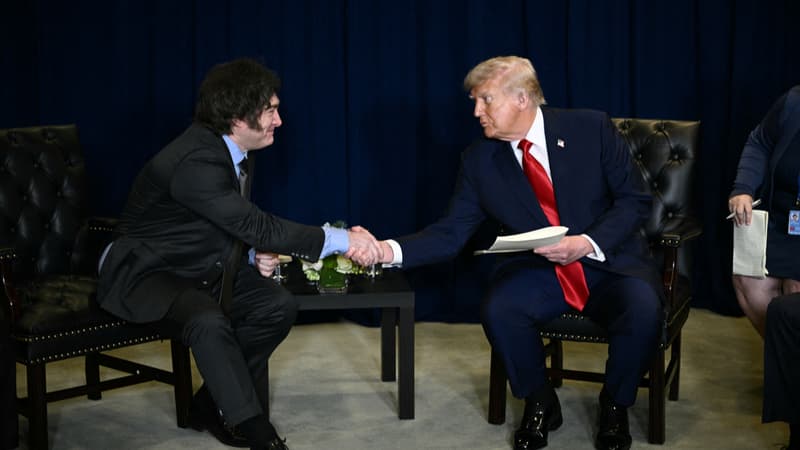Peso under pressure, emergency purchases, flight to the safe haven dollar: the Argentine economy is going through a period of great turmoil, despite the support of the United States, a few days before the key midterm elections of ultraliberal president Javier Milei. The instability of the exchange rate, common in the period before the elections in Argentina, pushes consumers to buy, fearing a devaluation – or depreciation – of the peso after the October 26 elections. And therefore, a rise in prices.
The brand reproduced an atavistic reflection of Argentines suspicious of their currency: buying the greenback as a refuge, in the parallel market. Federico Bornaz, a 28-year-old computer scientist, said he was shopping on the Asian online platform Shein and planned to buy a heater just before the election, “just in case there is a devaluation. This is, I think, the most likely scenario afterward.”
The Argentine economy and its weight have been in convulsions for more than a month, given the proximity of the legislative elections that will renew half of the deputies and a third of the senators. The president from 2023 is not at stake for his political survival but for his future room for maneuver, to be able to carry out his deregulatory reforms in the two years remaining in his mandate, in the face of a until then reticent Parliament. In the spotlight: a tax reform, with tax cuts, especially for companies, and a reform of the labor market.
Javier Milei, who has been governing in a strong minority for two years (37 deputies out of 257), believes that a good result would be to obtain “a third (of the deputies) that would allow the Government’s measures to be defended.” But the financial markets doubt the result and the maintenance of the austerity course that has allowed inflation to be stopped. It was reduced in 22 months from 200% in one year to 31%, but at the cost of more than 200,000 lost jobs, an economy in recession in 2024 (-1.8%), which struggles to reactivate in mid-2025. “I am aware that at this moment it is hard,” said Javier Milei in a brief meeting at the end of the day in Tres de Febrero, in the greater Buenos Aires suburbs.
“A temporary impulse”
On Friday, the peso found itself under pressure, after the fleeting stability that followed the announcements of US financial aid. It fell to 1,485 per dollar at the official exchange rate in Buenos Aires, a loss of 3.7% from the previous day, before closing at 1,475. US Treasury Secretary Scott Bessent announced on Friday that he had intervened directly again on Thursday in the currency market to buy the peso and defend it.
“The US intervention gave a temporary boost to the peso. But fundamentally, that doesn’t change the fact that the peso is out of sync, it is estimated to be overvalued by around 30%,” Kimberley Sperrfechter of British analysis firm Capital Economics told AFP.
In less than four weeks, the Trump administration announced massive aid: in the form of a $20 billion bilateral currency swap. Then, a device – still “in operation” – of 20 billion more dollars, with private banks and sovereign funds, to help Argentina’s debt. Donald Trump, who received Javier Milei at the White House this Tuesday, reiterated his firm support for his ideological ally in Latin America, on the condition that Javier Milei remains in power.
Scott Bessent later clarified, explaining that the support was linked to Javier Milei’s ability in Parliament to “veto any bad policy.” Javier Milei has since assured anyone who will listen that American financial support is guaranteed until the end of his term, “until 2027.”
Source: BFM TV


